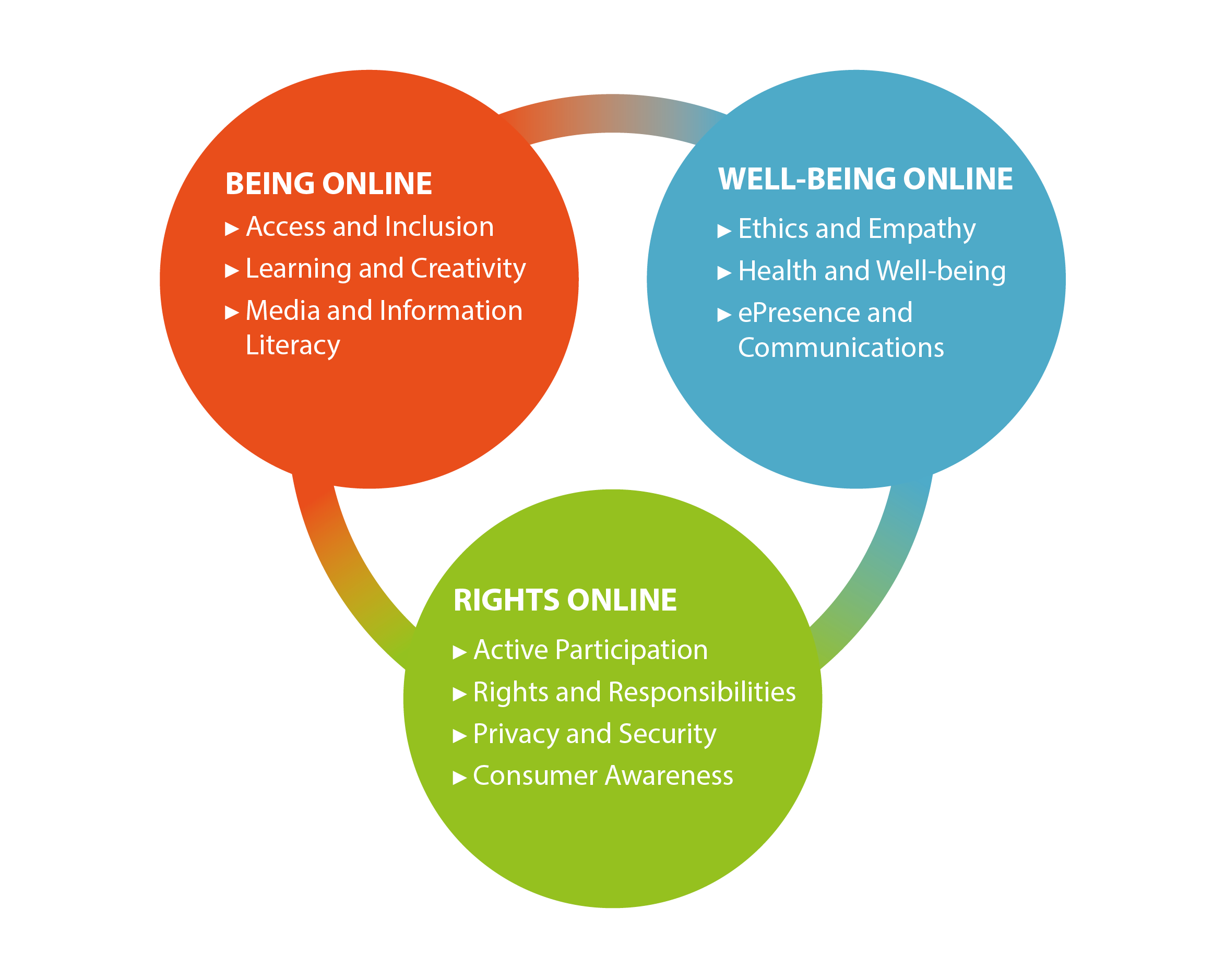Young people today inhabit a world that has been transformed by digital technologies, effortlessly enabling connectedness through social media and access to vast quantities of information. Making sense of this hyper rich information and engaging effectively and responsibly poses a whole set of new challenges for educators as they seek to prepare young people as citizens, exercising their rights and participating effectively in the affairs of the community. Our working definition of digital citizenship views education as both the spark and as effect of a process of citizenship.
Digital Citizenship Education (DCE) strives to empower children through education, developing the competences they need to actively learn and participate in today’s highly digitised society.
DCE is a holistic approach that strives to develop the essential skills and knowledge needed in today’s connected world, and foster the values and attitudes that will ensure they are used wisely and meaningfully.
Digital citizens can be described as individuals able to use digital tools to create, consume, communicate and engage positively and responsibly with others. They understand and respect human rights, embrace diversity, and become lifelong learners in order to keep step with evolutions in society.
Digital citizenship competences comprise 10 different domains of activity under three umbrellas: Being online, Well-being online and Rights online.

- The first group, Being Online, includes domains that relate to competences needed in order to access the digital society, freely express oneself, and use digital tools creatively and with a critical mind.
- The second group, Well-being Online, includes domains that relate to competences needed to engage positively in the digital society, and develop a healthy relationship with technology.
- The third group, Rights Online, includes domains that relate to competences related to the rights and responsibilities of citizens in complex, diverse societies in a digital context, where privacy is protected and active participation is empowered.


